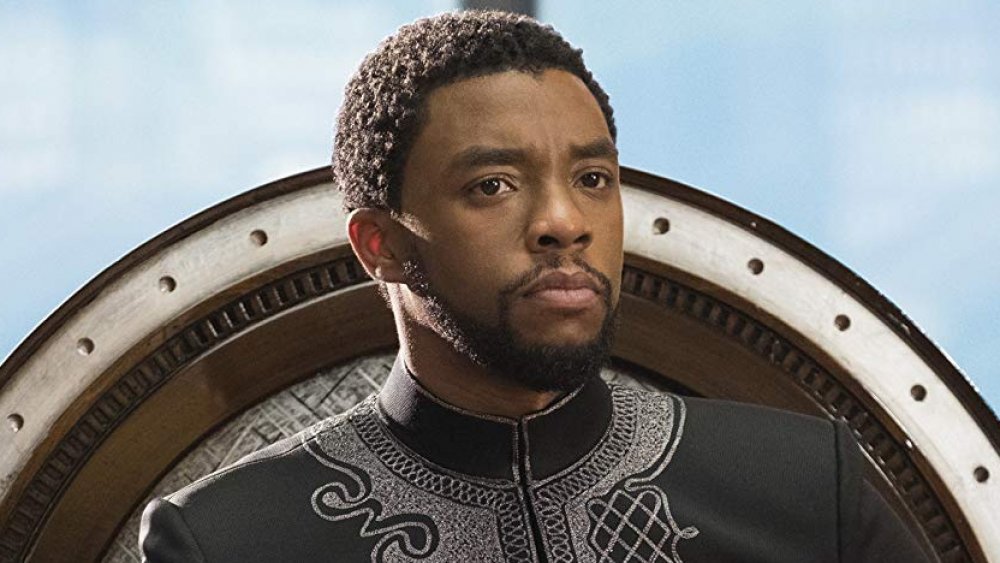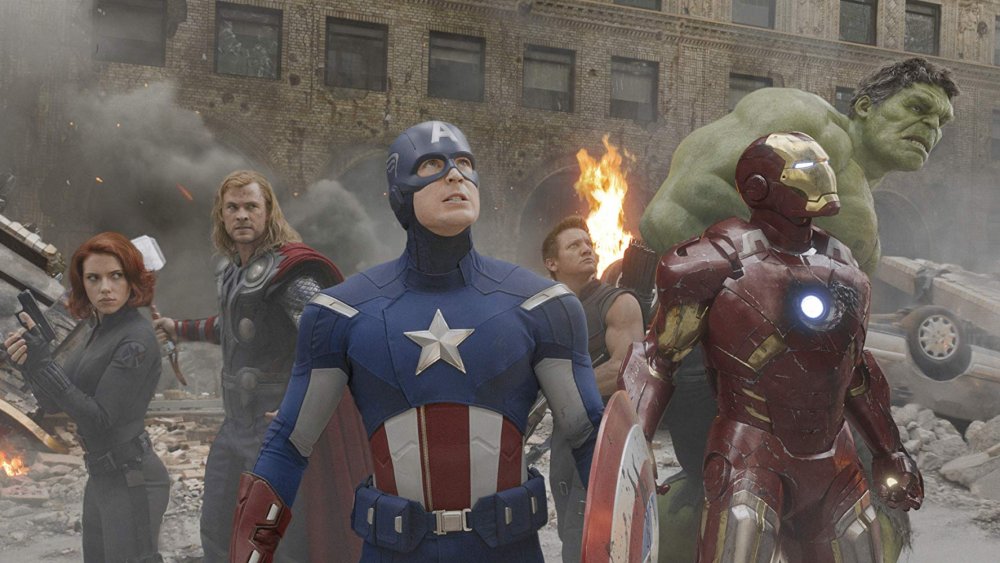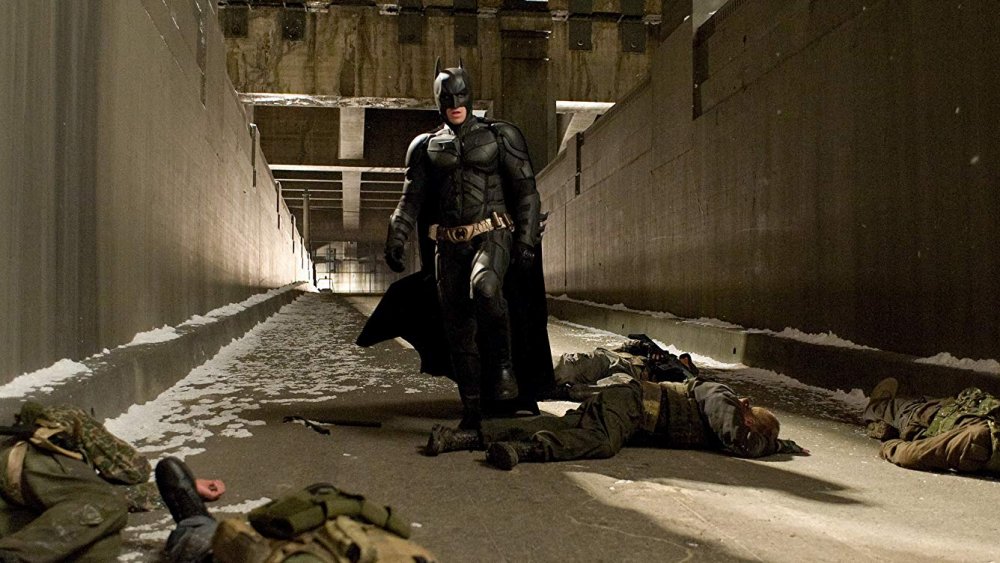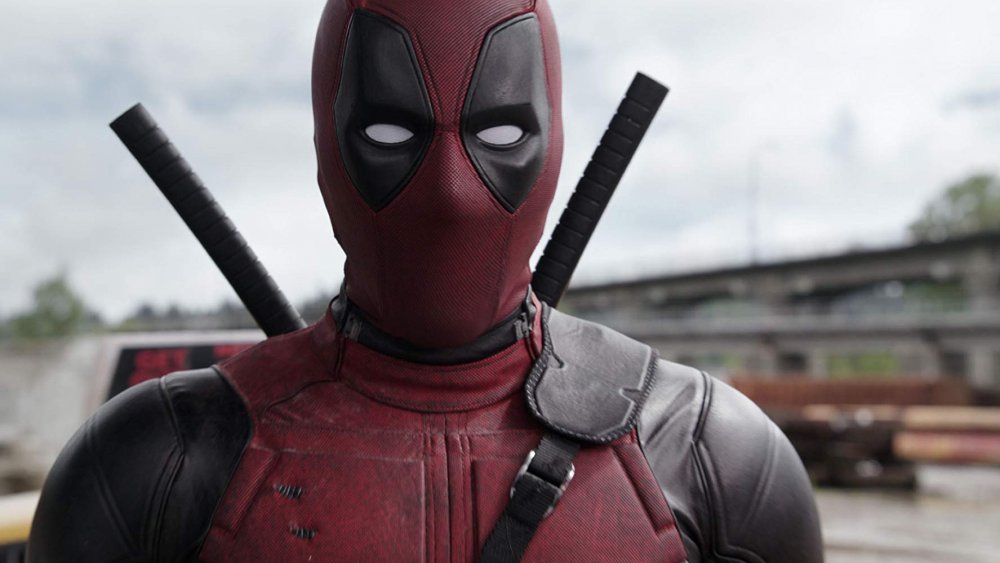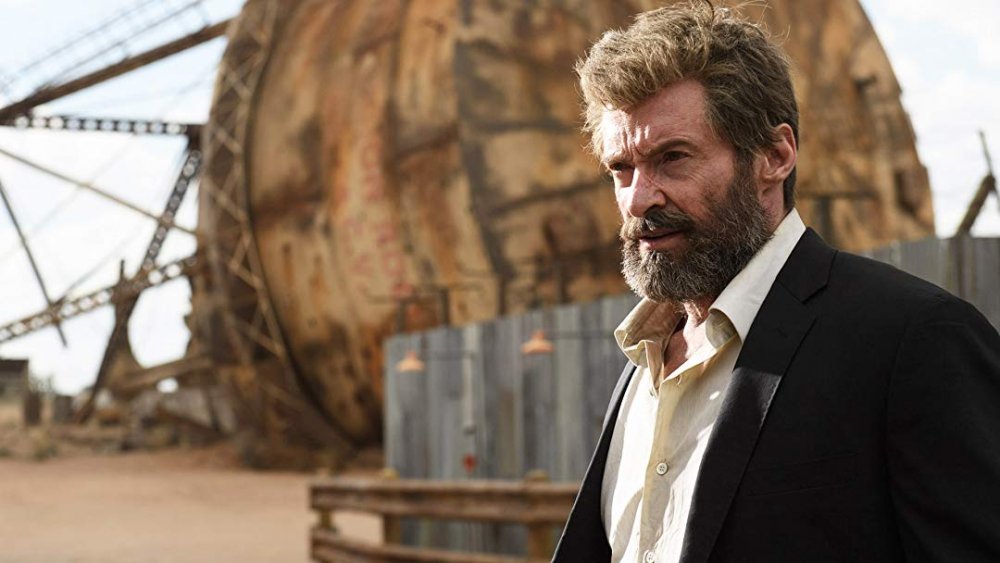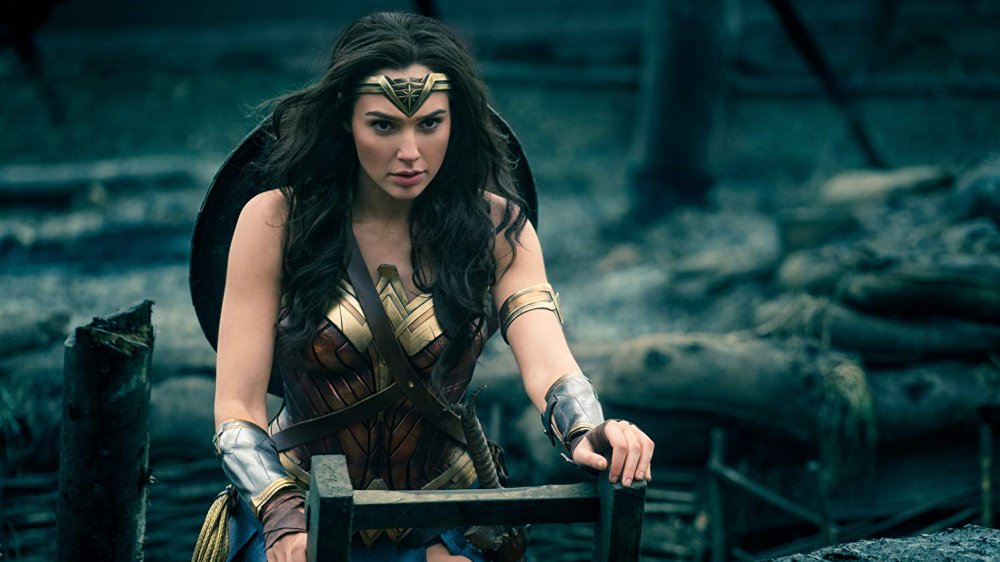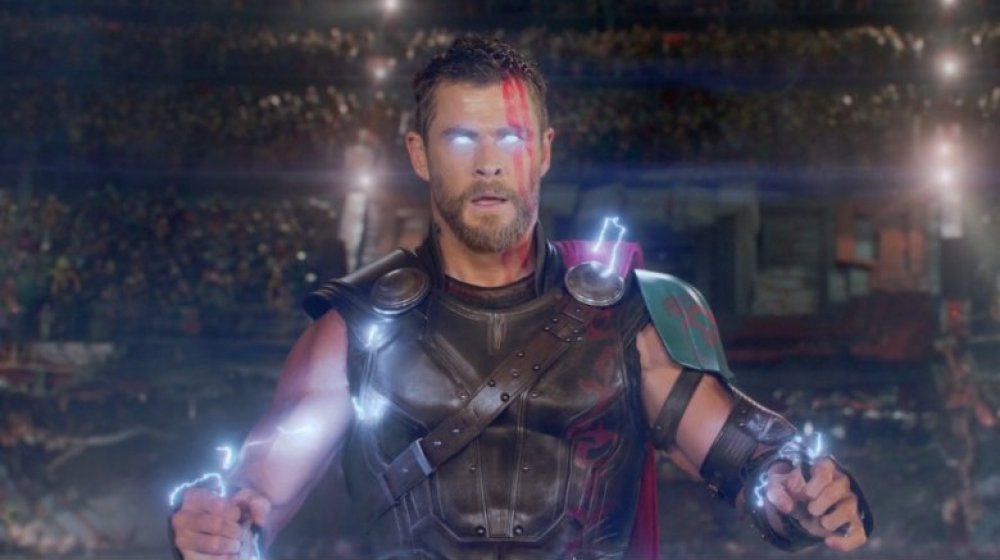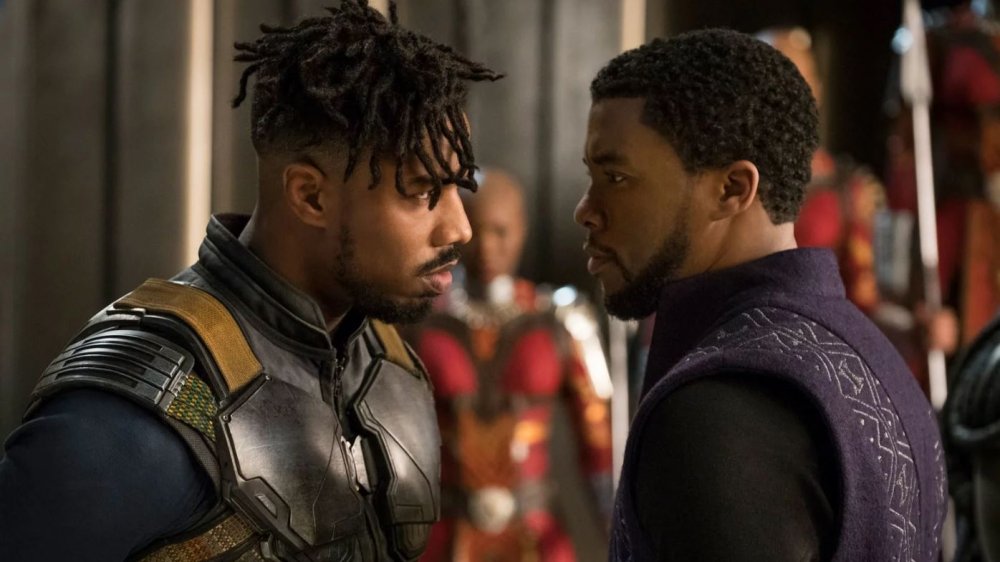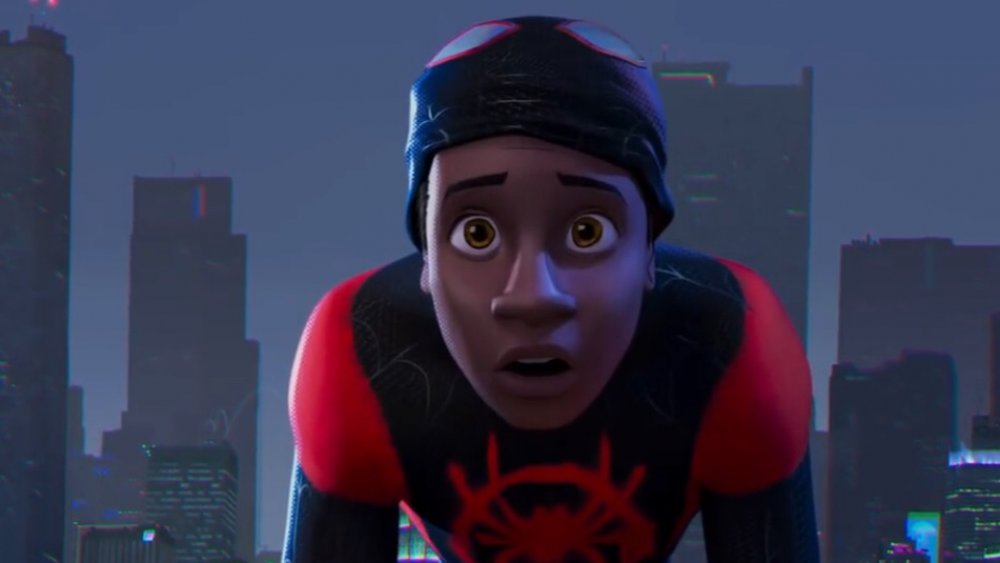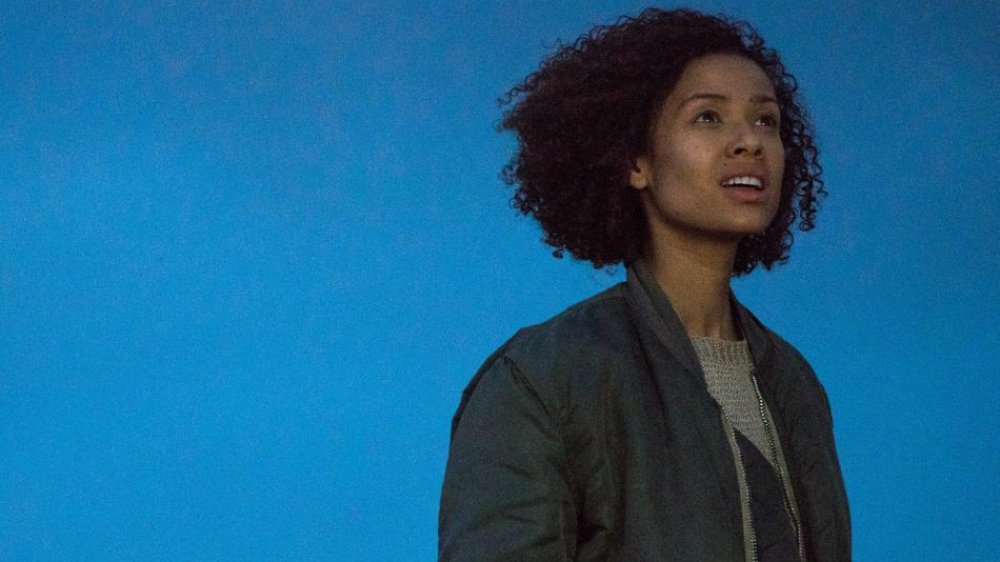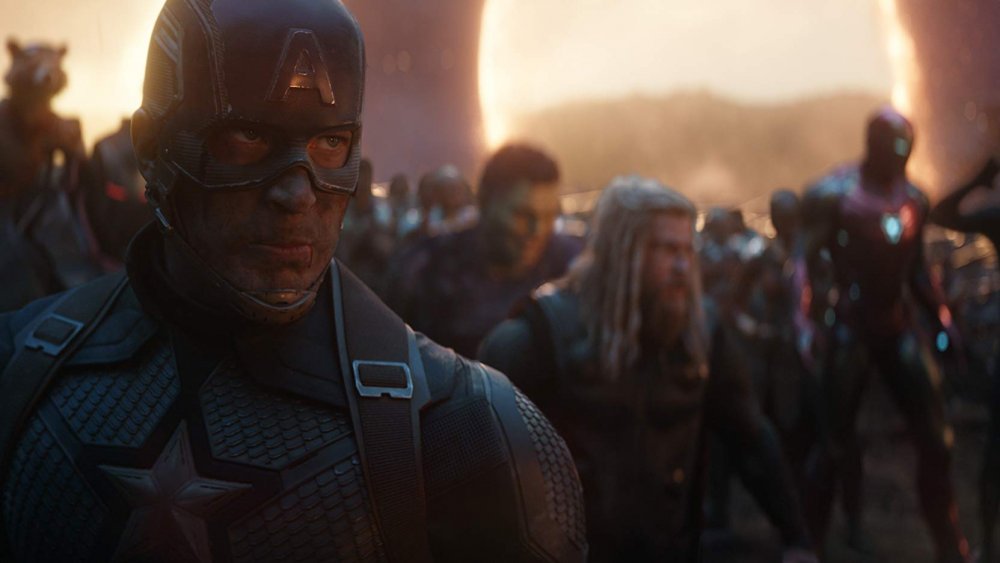The Best Superhero Movies Of The Last Decade
In 2008, two key things happened that changed the blockbuster landscape forever. Iron Man arrived, launching the Marvel Cinematic Universe, and The Dark Knight became, for a brief time, the biggest movie on planet Earth. Ever since then, we've been living in a world of ever-increasing superhero movie density, which means that if you love seeing capes and tights on the big screen, the 2010s were extremely fun.
The past decade has brought it with it dozens of new superhero stories, from the MCU's nearly two dozen releases to DC's own attempts to launch a universe, as well as the smaller films in between. We've seen reinventions, reboots, revisitations, and a number of all-new stories springing from imaginations eager to capitalize on a marketplace that can't seem to get enough of superpowers.
Of these many, many superheroic explorations, though, only a few can be counted among the very best, and as we look back on the 2010s, it's time to break down the cream of the crop. Here are the best superhero movies of the last decade, in order of their release.
The Avengers was the perfect team-up movie
From the moment Nick Fury said the words "Avenger Initiative" at the end of Iron Man, in a time well before everyone knew to stay after the credits for Marvel movies, superhero fans everywhere were waiting for the moment when those words would be given form. Somehow, even as the casting announcements were made and the other solo hero adventures were released, there was a part of all of us that still didn't quite believe. Even after the first trailer hit, The Avengers still felt like something out of a dream, something that couldn't possibly work even if it was real.
Then the film arrived, and not only was it real, but it was an absolute blast. The Avengers is certainly not a perfect film, but those of us who were there when it opened in the spring of 2012 can still remember the sense of pure awe the film inspired simply by existing and being as fully formed and solid as it was. There's a certain miraculous quality to that particular team-up, helmed with humor and heart by writer/director Joss Whedon, that makes it feel magical. Avengers movies are a pop culture language all their own now, but back then, it was hard to imagine something like this working so well. That it still works nearly a decade later is proof that The Avengers was a certain kind of lightning in a bottle.
The Dark Knight Rises took superhero movies to operatic heights
Few superhero films have ever been in a position as precarious as The Dark Knight Rises. This was the film that had to not only conclude Christopher Nolan and Christian Bale's Batman trilogy, but also had to follow The Dark Knight, a film that was for a time the biggest superhero movie ever made, and one that earned a posthumous Oscar nod for Heath Ledger's force-of-nature turn as the Joker. It was an unenviable place to start from.
To this day, The Dark Knight Rises is a particularly divisive film among superhero fans, but the thing that sticks out years after its release is Nolan's inarguable sense of scope and ambition. Where The Dark Knight was often at its best when it functioned as a psychological duel between two opposing personalities, The Dark Knight Rises was a citywide display of mayhem, epic in its scale and its themes. From the trapping of every single Gotham cop beneath the city to the football stadium explosion to Scarecrow sitting atop a mountain of desks as the judge of all Gotham, the film is practically operatic in its sensibility. It remains the boldest, broadest, most daring portion of the Dark Knight trilogy, and the gutsy swings it took are still worth revisiting.
Deadpool was the decade's funniest superhero film
The most memorable films in any blockbuster subgenre are very often the ones that seemed like questionable ideas at some point on their path to the screen, and in the 2010s, there's perhaps no better avatar for that feeling than Deadpool. The film famously spent years in development as star Ryan Reynolds lobbied for an R-rated superhero comedy that would break the fourth wall and mock everything from the X-Men movies to Green Lantern, and it wasn't until a reel of test footage blew up the internet that studio executives finally took the hint.
Even after it was finally greenlit, questions surrounded Deadpool's ability to execute its meta style for the full length of a feature film. When the film finally arrived, it put all those questions to rest. The movie was a full-blown phenomenon, led by Ryan Reynolds' joke-a-minute sense of fun in the title role. It proved there was an appetite for more R-rated superhero fare, and it set the stage for a kind of franchise-building that even Marvel Studios hadn't attempted at the time. Plus, the movie's just a blast from beginning to end.
Logan said goodbye a classic character
Hugh Jackman had been wearing the claws as Wolverine for nearly 20 years by the time he decided to make Logan his curtain call as the character, which raised the stakes in what had by then become well-known as a hit-or-miss movie franchise. The X-Men films were already famously uneven by the time Jackman and director James Mangold began working on his final film, and that unevenness extended particularly into the Wolverine spin-offs Jackman had already starred in. Still, from the moment the first trailer arrived, it was clear that Logan was something special.
Jackman's final Wolverine effort could've been a glorified cameo in another massive X-Men film or some kind of prequel film that allowed Fox to play with even more side characters. Instead, he and Mangold made sure the character went out like an old gunslinger in a futuristic, superhero Western, heavy with meaning and bittersweet action. From the opening sequence to the heartwrenching final act, Logan is the kind of masterpiece every franchise actor hopes to go out on.
Wonder Woman gave Diana her due
By the time Wonder Woman rolled into theaters, nearly four decades had passed since Superman's first blockbuster and nearly three decades since Batman's. The film could've been a barely passable exercise in adaptation, and it would've still generated a certain degree of attention simply because it was well past time for the Amazonian princess of the DC Comics Universe to get her big screen due.
Instead, director Patty Jenkins and star Gal Gadot gave us a dynamic, warm, fierce film that followed Diana from her childhood on Themyscira to her introduction to the world of men and, finally, to her first great battle among mortals. The film is packed with instantly memorable sequences, from the "No Man's Land" battle that became its centerpiece to Diana and Steve Trevor's quiet discussion about sex. And as for the supporting cast — led by an absurdly charming Chris Pine — they take care of the rest. Even now, Wonder Woman still stands as the DC Extended Universe's very best film.
Thor: Ragnarok gave new, weird life to the MCU
After Guardians of the Galaxy came along and proved that Marvel Studios wasn't afraid to get a little weird, it seemed likely that at least one of the franchise's already established heroes was due for an extra infusion of strangeness. Fortunately for all of us, the hero who got that infusion was Thor, and the person doing the infusing was the great Taika Waititi.
Thor: Ragnarok gave the god of thunder the kind of boundless science fiction overtones that he's often had in his comic book adventures, with an added extra dose of comedy to underline his place among the most lovably well-intentioned idiots in the Marvel Cinematic Universe. Waititi's visual stamp, from the brightly colored sets to the oddly shaped spaceships, is all over the film, but the real heavy lifting is done by a magnificent cast led by Chris Hemsworth in the title, Mark Ruffalo as Bruce Banner, Tessa Thompson as Valkyrie, and of course, Tom Hiddleston as Loki. Ragnarok is an exercise is reminding us all that even the most established franchise heroes deserve to be shaken up with vigor now and then. The result of that shake-up is perhaps the most flat-out entertaining film in the franchise so far, one that changed the MCU for the better.
Black Panther changed the superhero game
One of the often unfortunate side effects of living in a world so saturated with superhero media is the tendency we have as fans to raise the stakes on one film or another to near-impossible levels. In the imagination of the fandom, every superhero film in a major franchise has the opportunity to be an absolute game changer in one way or another, and when filmmakers catch onto that way of thinking, sometimes the films become more about changing the game than they are about telling a good story.
The point is that there was a lot riding on Black Panther, the first superhero film in the mega-popular Marvel Cinematic Universe to feature a black lead character and a primarily black leading cast. Everyone wanted it to change the world, but they also wanted a great superhero blockbuster. With the deck stacked against them, director Ryan Coogler and his cast managed to do both. Black Panther is exactly the kind of groundbreaking, moving, extremely well-imagined superhero adventure we all hoped it would be. With its Oscar-winning score, costumes, and production design, the movie tapped into a culture and mythology rarely seen in Hollywood movies. Plus, it gave us one of the best supervillains to ever grace the silver screen — Michael B. Jordan as the deadly yet sympathetic Erik Killmonger. Black Panther absolutely changed the superhero genre, and it's the kind of film that will remain a touchstone of the genre for years to come.
Spider-Man: Into the Spider-Verse might be the best Spider-Man movie ever
If there's one superhero who's arguably oversaturated the big screen in the 21st century, it's Spider-Man. Everyone's favorite webslinger has been through three different live-action incarnations in less than 20 years across seven different Spider-Man films, and that's not even counting current Spidey Tom Holland's crossover adventures with other Marvel heroes. There's a lot of Spidey at the movies, so a cartoon adventure that united several Spider-characters into one adventure seemed like it might tip the scales to the point of exhaustion.
Then Into the Spider-Verse arrived and quickly proved that there's no such thing as too much Spider-Man if you know what you're doing. The film's dynamic and endlessly compelling animation style, killer voice cast, and moving story combined to create what might just be the best Spider-Man movie to date. It's a film that understands the Spider-Man journey with such precision that it can communicate vast emotional truths in the span of a single moment, and you leave the theater believing that anyone really can wear the mask. The amazing soundtrack doesn't hurt, either.
Fast Color is one of the decade's most underrated movies
Superhero movies come in all sizes, cover all manner of themes, and run the gamut of subgenres even within their own subgenre. Films like Logan, Deadpool, and even Guardians of the Galaxy helped to prove that throughout the 2010s, but superhero movie greatness also extends beyond the big Marvel and DC properties, and Fast Color is proof.
Directed by Julia Hart, who co-wrote the screenplay with Jordan Horowitz, this underrated superhero movie tells the intimate story of a family, the strange powers they keep, and the tribulations that have kept them at a distance from one another in a dying world where it hasn't rained in years. Gugu Mbatha-Raw leads a fantastic small ensemble of actors as they navigate the tense emotional landscape of a story that's as much about family ties as it is about superpowers. Tense, well-crafted and full of heart, Fast Color is a masterclass in how to use genre conventions judiciously. It builds and builds in a patient, careful way, never giving away the goods too quickly but always making its more superpowered moments count, right up until a deeply emotionally satisfying climax. In a landscape full of megafranchises, it's a reminder that there should be room for smaller films like this, because they can often hit us just as hard as the blockbusters.
Avengers: Endgame was the biggest superhero film of all time
One of the biggest complaints lobbed at Avengers: Infinity War when it came out in the spring of 2018 was the apparent lack of stakes within the story. That film ended with half of all life in the universe reduced to dust as Thanos celebrated victory and the Avengers licked their wounds, but critics still cried foul. How, in a franchise full of endless sequels, were we expected to believe that this would really have any tangible emotional impact? How do you create a lasting payoff in a mega-franchise that is, by design, always gearing up for the next story?
Avengers: Endgame is the answer to those criticisms and concerns in the grandest way possible. The concluding film in what Marvel Studios dubbed "the Infinity Saga," Endgame is like Infinity War in that it's a sprawling ensemble piece with the fate of the universe at stake, but after that, the two films diverge in a number of powerful ways. Endgame was a sure thing at the box office, but that didn't stop the team behind it from taking any number of risks, including an early death scene, a major time jump, and of course, a time-traveling caper that takes up a whole lot of the film. It's a swing for the fences with a massive payoff that covers not just the three-hour film but the entire previous decade of filmmaking at Marvel.
